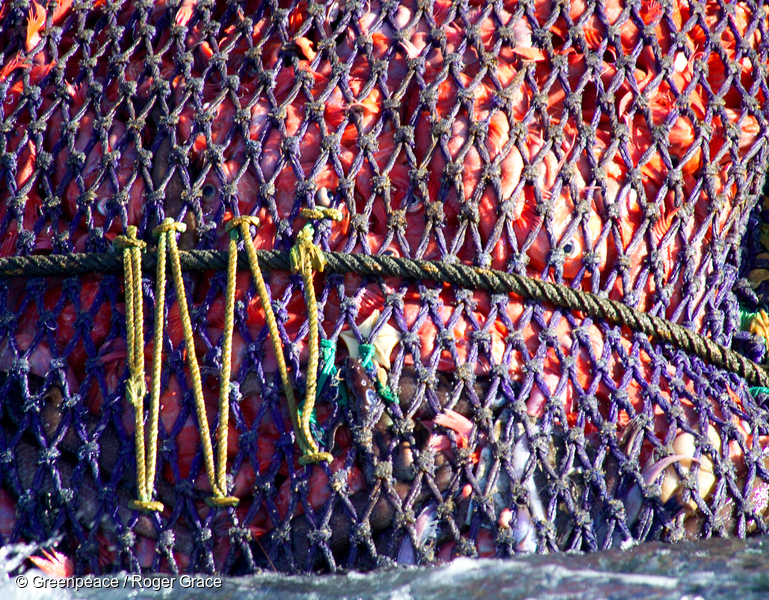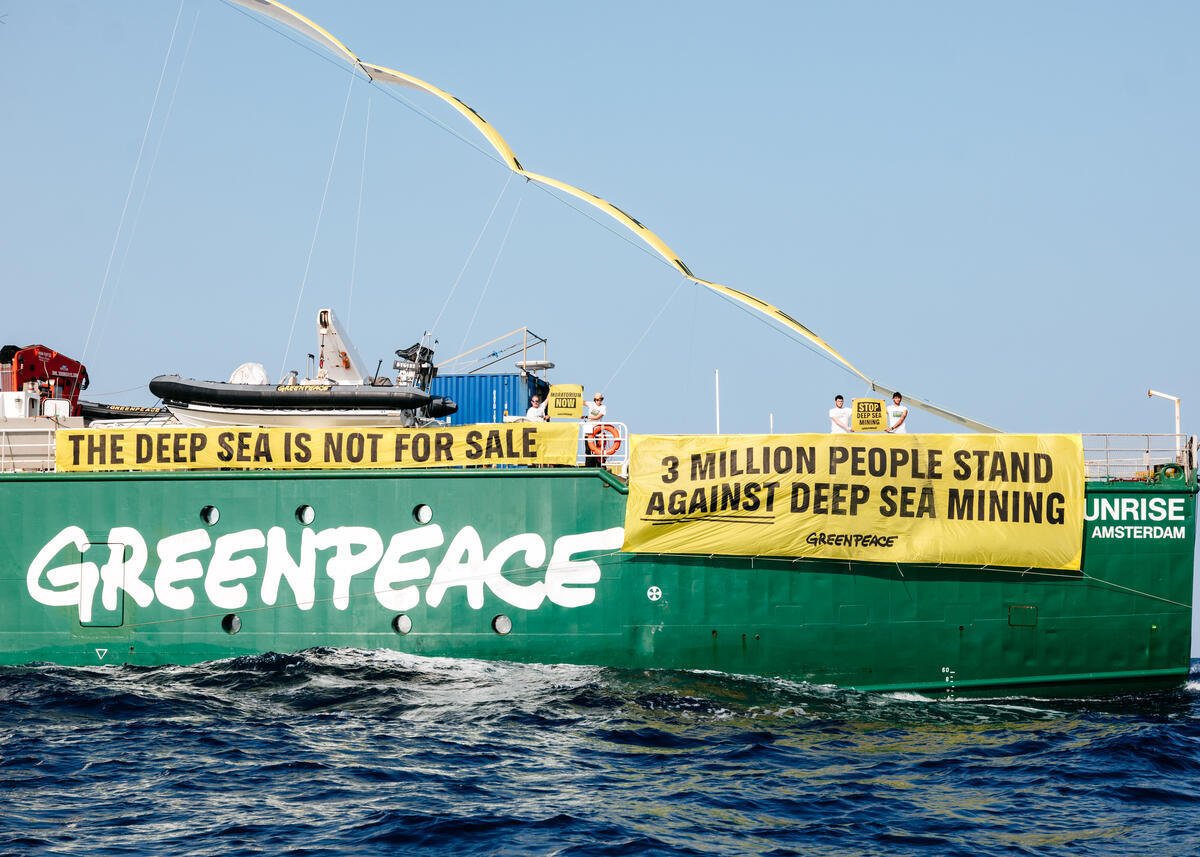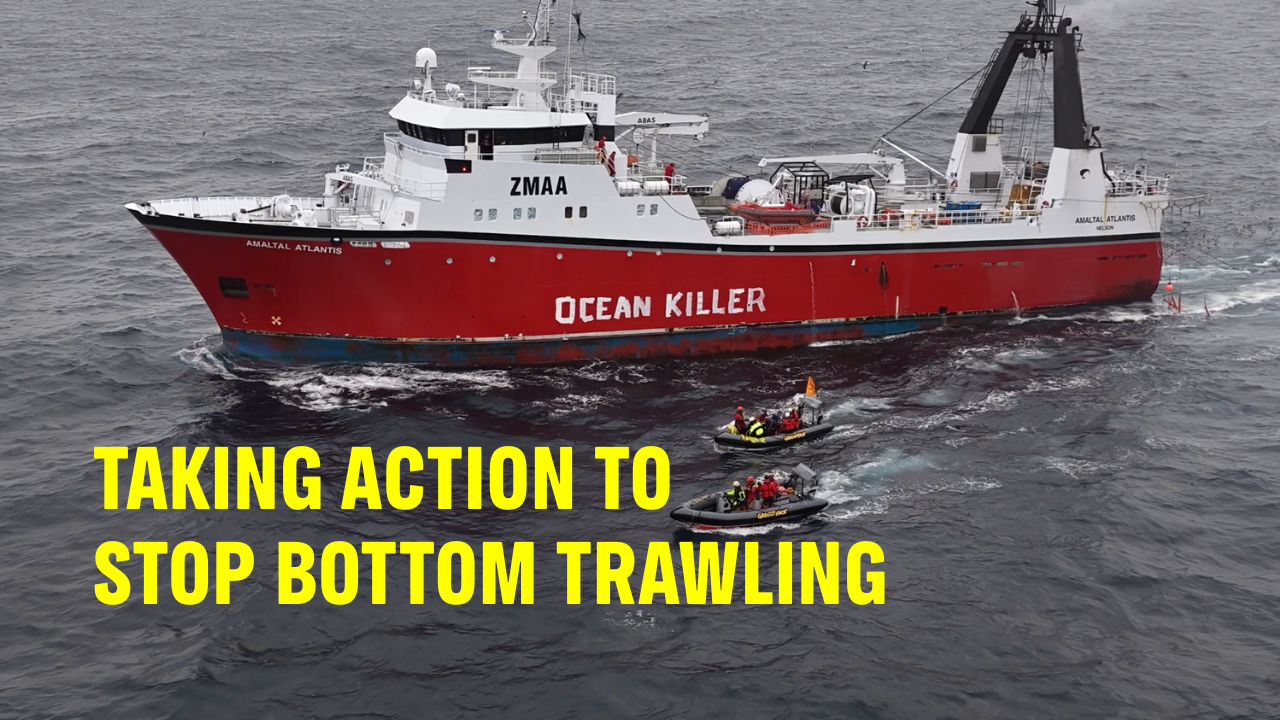International mining companies plan on opening a new frontier for extraction: mines on the seabed to get more of the minerals and metals from the Earth.
But the implications for the ocean system would likely be huge. Mining companies claim that these metals and minerals are vital for the clean energy revolution, but the truth they don’t want you to know is that we can have this without ripping up the seabed.
Because deep sea mining has not started at scale anywhere in the world, we don’t know with certainty what impacts it would have.
But scientists are already saying: it’s too risky. The deep ocean is one of the least studied places on this planet. What we do know about it is that it plays a vital role in carbon storage and that there are creatures down there that have never been studied.
We know that the technology that allowed us to develop rapid tests for Covid-19 came from an area deep-sea miners want to mine. Imagine where we’d be today if they’d already wrecked the area through their activities?
With these things in mind, Greenpeace opposes deep sea mining, believing it would likely have multiple adverse consequences for the ocean.
Most people would agree that when you don’t fully understand the impact of something, you should proceed with caution. In scientific circles, this is known as ‘the precautionary principle.’ And this is exactly what should be used here. In the middle of a climate and biodiversity crisis, we must protect habitats and natural carbon sinks more than ever before, not open them up for experimentation.
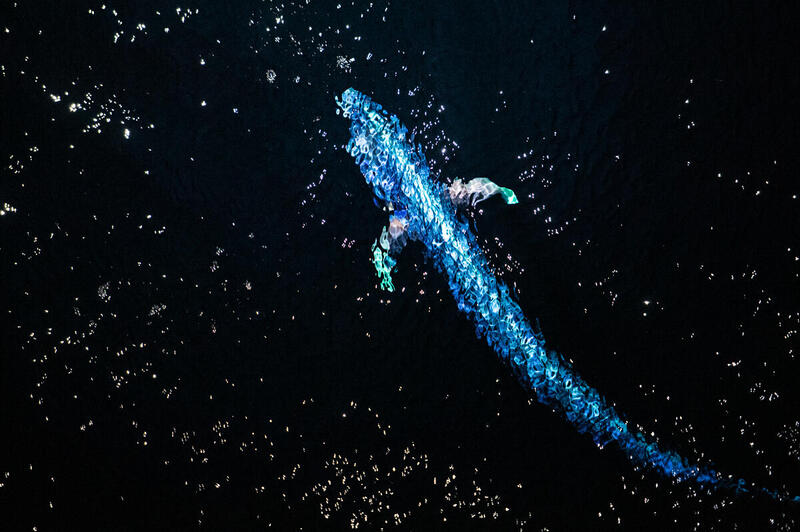
How can we have EV batteries without mining?
Revolution is not a half-baked term. It doesn’t mean adjusting something slightly, in fact, the origin of the word literally means to revolve, or turn around. It means a complete rethink of the way things have been done.
For the clean energy revolution to achieve what it needs to, for it to set us on the right path, it needs to avoid as many past mistakes as possible. In short, we need to think completely differently about how we interact with this planet, the way we build things, and how they’re consumed.
Most of us have lived under a system where products have been built to break – a ploy by big companies to keep the endless consumption cycle turning. It has involved a take take take approach to the Earth, with little thought to the consequences. This is going to have to change if we want a habitable planet because our resources are not endless, and both the mining of new materials and the disposal of them at their end of life is gravely impacting nature.
The opposite of our extractive mindset isn’t as simple as swapping fossil fuel cars for EVs, one for one. Instead, we need to build a new system, where we move away from cars that are fueled by petrol and diesel and need fewer cars in general. We need to rethink how we do transport and how we design our towns and cities to embrace more innovative solutions, like car share schemes, affordable public transport and safe cycling and walking infrastructure.
In this future, you don’t have to think twice about taking the bus, tram or train to work – they’re frequent and run on time. You can comfortably read a book, charge your phone or check your emails on the free wifi, instead of stressing about the traffic. Plus, you don’t need to worry about finding parking at the other end – what a relief.
On warm, sunny days, you choose to ride your bike to drop the kids off at school. You know it’s safe because the lanes are separate from the traffic. Neighbourhoods and streets are now being designed with children, disabled people and the elderly at the centre. It makes so much sense that you wonder why we didn’t always do things this way. You see so many more people scooting, pushing prams, using wheelchairs and walking now that it’s safer, cleaner and more convenient.
We have EVs to help us reduce emissions, but we haven’t simply swapped one crisis for another – fossil fuel emissions for a destroyed ocean.
We know now that we cannot endlessly extract from the Earth and Ocean with no consequence. So much damage has already been done through this extractive mindset, that extra caution is now required. Given the role the ocean plays in balancing the climate and maintaining biodiversity, we must give it breathing room, and a chance to recover and thrive.
Closing the loop
The top line is that we need to innovate and create materials that are more durable and long-lasting, reducing waste and the constant need for further extraction. We can reuse and recycle minerals that we’ve already got for the clean energy revolution, rather than chuck them in the trash and seek more virgin materials from the Earth.
When we talk about reuse and recyclability we mean batteries must be better designed so that they are easy to refurbish (for reuse/ second life) and to recycle at their end of life (so the materials are re-used). Recovery and recycling of materials in batteries should become mandatory everywhere.
As with issues surrounding other materials, we need to close the loop on this so that mining for new ones becomes obsolete.
Things are moving so fast in this area that many major manufacturers are rapidly changing battery technologies to remove the need for costly, and environmentally difficult materials, such as cobalt and nickel (metals primarily targeted by seabed mining companies). In April 2021, China’s BYD (the world’s second-largest electric vehicle manufacturer confirmed it will be nickel, cobalt and manganese free).
Some companies are already leading with their conscience. Companies like BMW, Volvo, Samsung and Google, which have major battery demand, have already pledged to not use metals and minerals from deep-sea mining activities unless and until the environmental risks are comprehensively understood.
From the other side, industry experts are calling for mandatory recycling of minerals and metals, like the ones seabed miners are targeting, to ensure the transition to the clean energy economy is actually clean and green.
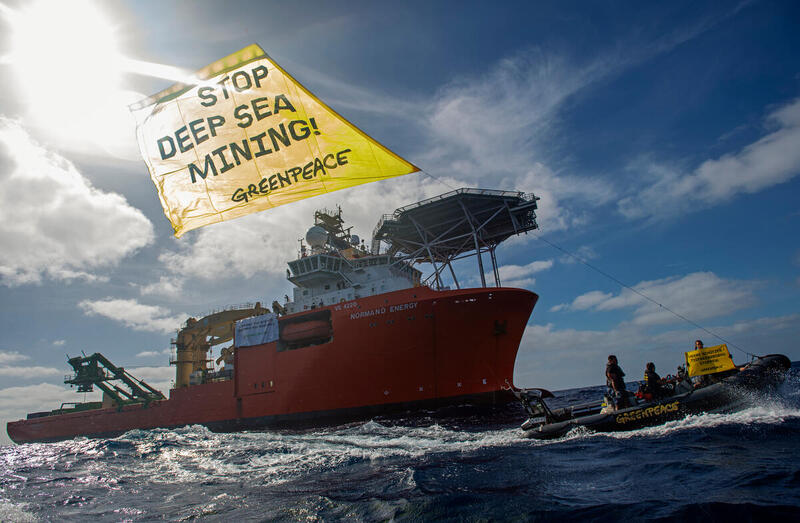
Deep-sea mining not worth the risk
Seabed mining would be a risk to the ocean on multiple fronts. It would involve the destruction of seafloor life in extracting the metals, and then the plumes of sediment released in the operations would smother a much wider area. It could have implications for multiple ocean creatures, and communities whose waters could be affected by the mining.
We know the ocean is under a multitude of pressures, and that scientific report after report warns us it’s in dire straits. Destructive fishing practices, pollution and climate change are pushing the ocean to the brink, and we desperately need to take the pressure off, not add a new one into the mix.
Globally, Greenpeace is calling for deep-sea mining to be banned. In Aotearoa, we think we can start a ripple effect off in our tiny corner of the world, by the Prime Minister banning seabed mining here. You can support that call here.
Read more: Seabed mining in Aotearoa
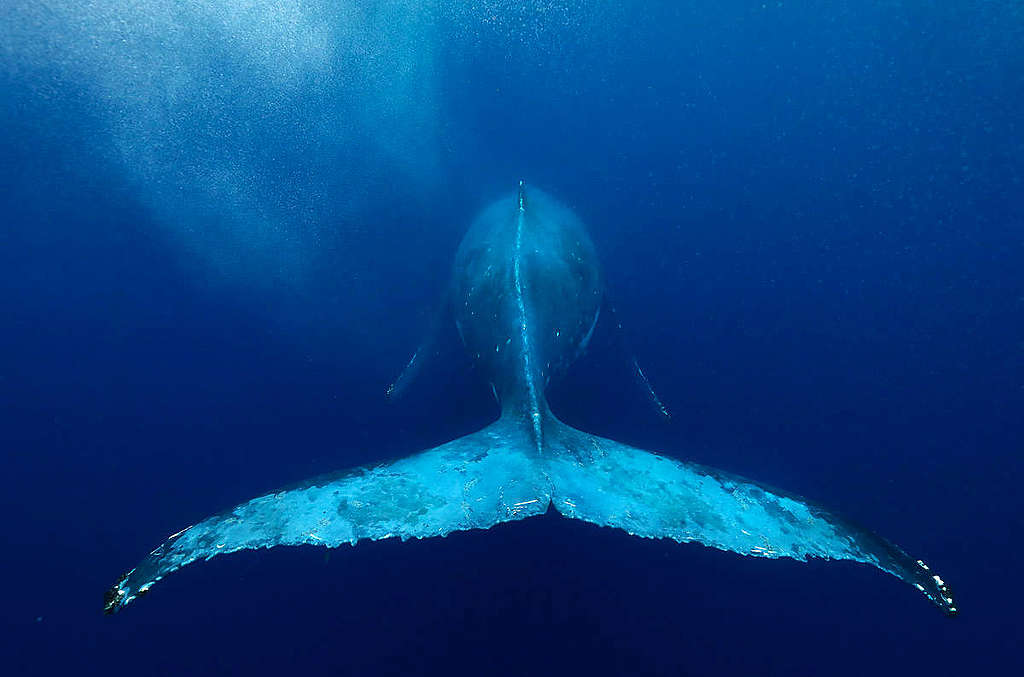
Seabed mining is a new threat to the oceans. Now is our chance to prevent the destruction before it’s too late.
Add my name

